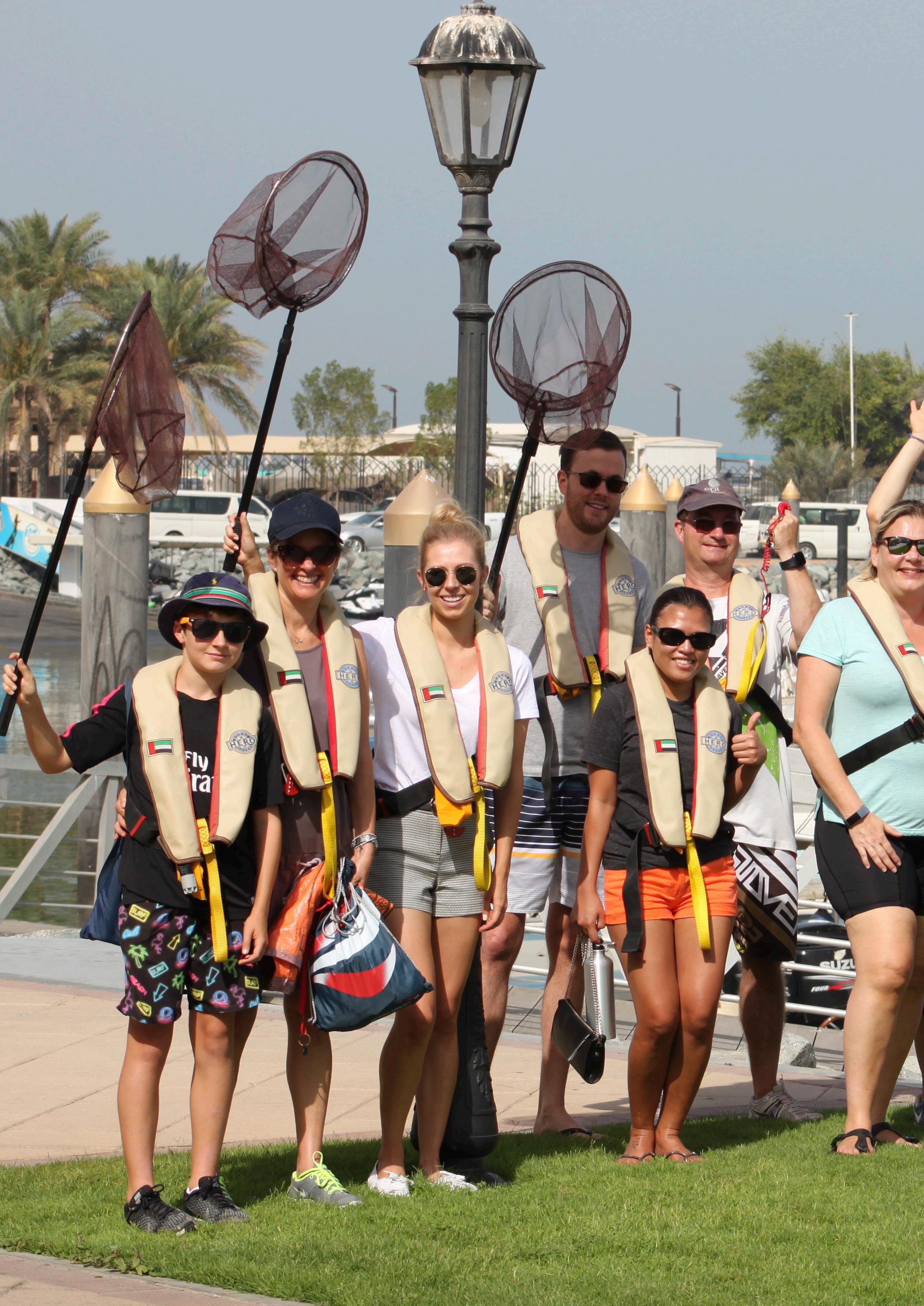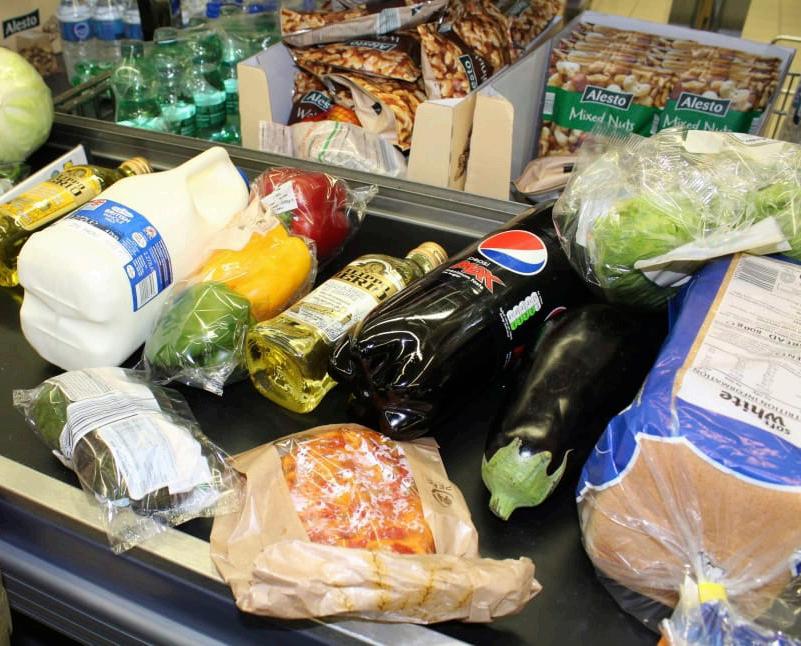
8 minute read
Why Changing our Habits when it comes to Reducing Marine Debris can be so Difficult
FEATURE NATALIE BANKS

If I were to tell you that the number one item that is generally found during a coastal clean-up is cigarette butts, and that they are negatively impacting the marine environment, would it be enough, if you were a smoker, to give up smoking? Probably not. Most smokers already know that smoking is bad for their health, but this generally isn’t enough reason to give up the habit. So what is it that can help people to change their behaviours and thinking?
Having a big enough reason on its own will not suffice, what is needed is encouragement to give up and, more importantly, help for when they fall. You see, every one of us has a fear when it comes to changing habits. This could be for example, a fear of failing, of being criticised for trying to do something different or a fear of not being perfect in our attempt. We all have different personalities and react to these fears differently, but no matter what our personality, whenever someone finally gathers the courage to step outside their comfort zone, they will either face criticism or make a mistake, often leading to a setback. It’s like dieting. Every now and then, the dieter will sneak a bite of a cake or have a donut or a packet of chips for example. If others are around when that happens, it is really interesting to see who will and won’t be there to support you.

The same situation takes place when it comes to decreasing your waste and therefore the issue of marine debris. I have spent a few years now speaking to thousands of people and getting people involved in undertaking marine debris clean-up days, but despite the holistic learning, the impacts have not been high as I would have liked. When I finally took the time to understand the reason why, I realised that I had left out a very large component to my presentation, and that is empowering my audience to have the courage to give it a go. Unfortunately our reliance on plastic has seen this material permeate all aspects of our lives. Right now, I am typing away on keys made up of plastic. So no matter our intentions, we will not be able to give up our reliance in 2020 on this material 100 per cent.
So for those all or nothing personality types, the black or white thinkers, the issue of reducing impacts as a result of marine debris can be extremely difficult when they realise that in order to do so, it will mean doing it imperfectly. Herein lies the issue. Fears of failure or criticism is holding people back, when in reality, what this planet needs is everyone focusing on this issue, imperfectly. There is too much criticism when it comes to the environmental movement and not enough encouragement. We need to embrace imperfection if we are really going to make enough change to reverse or even stall the destruction that marine debris has had so far.
A lot of the marine debris found during a coastal clean-up is made up of single use plastics. Most items are generally easy to substitute, such as using reusable bags, bamboo or stainless steel straws, reusable coffee cups, and bamboo toothbrushes instead of the plastic version. But the hardest one to avoid, generally, is food packaging. There are some amazing benefits to plastic, which is why it has become so invasive in our lives, and these include how cheap the material is to manufacture, as well as how lightweight it is to transport and when it comes to the fast moving consumer goods industry, plastic is a brilliant material when it comes to sanitisation and giving food and beverages greater shelf life.
The downsides however are quite frightening as we have all started to see and these don’t just include the impacts on marine animals. Marine debris found along our coastlines, have the potential to introduce invasive species, impacts on our shipping industry (which we rely heavily on for cargo, food, protection and recreation to name a few) and can also impact the tourism industry as people opt out of visiting dirty beaches. Additionally, just like cigarettes, the pollutants that plastic attracts, the toxins and chemicals, are bad for our health. These pollutants have been linked to reproduction, developmental, behavioural, neurologic, endocrine and immunologic issues in humans, while the chemicals leached from plastic through heat, such as phthalates and bisphenol have been linked to hormone disruption, heart disease and cancer.
Somewhere along the line however, it has become normal, to introduce this material into or on our bodies and even worse, to those that we love. We now drink from plastic water bottles instead of from the tap, use plastic straws and plastic food containers and our food is substantially wrapped in plastic. To add to this, as we have increasingly used synthetic fibres in our clothing, tiny micro plastic threads have made their way from our washing machines directly into the ocean which is consumed by small fish, which, we then ingest if we consume seafood.
This also goes for T-shirts made from recycled water bottles. While the concept sounds great, the washing machine industry isn’t able to cope with filtering the tiny plastic micro-threads and a greater problem is being created. Synthetic fibres are not only creating issues in our oceans, but in some cases they are playing havoc with people’s skin. The same goes with glitter, which again, we have somehow normalised in putting in makeup and on our skin. Glitter is also a micro plastic, and when washed from our bodies, enters our oceans and can cause adverse skin issues.

The answer to the concerns that every single person asks themselves when they venture into reducing their single use plastic impact, is not just whether they can commit to it, but to ascertain where their values lie. Most people generally put their health into the top five categories of things they value. For me personally, my health is my number one priority. I am nothing without it. Therefore knowing the health issues linked to plastic, I feel obliged to reduce my consumption.
That’s not to say I haven’t ever experienced issues of self-doubt. I too have had my fair share along the road of that small voice in my head telling me I’m a failure, to let others much more experienced than myself take the reins, and have even questioned whether I am enough to take on the role as being a spokesperson for the oceans. I’ve called myself a hypocrite more times than my loudest critics for not being able to purchase milk in a container without a plastic lining, or for getting plastic wrapping in my deliveries despite the number of times I have called ahead to ensure that there will be none. No matter how hard I try, I cannot seem to avoid plastic.
But here is the secret.
I took those self-critical voices and replaced them with the voices of my support network. I took those small critical voices and made them even smaller. I can still hear them, but I don’t let them control me. Because I value my health and I value courage, I continue my journey on reducing my impacts of single use plastic and by doing so, I am completely aligned to my beliefs.
I know I have changed lives, as people have told me so. My friends send me pictures of the actions they have taken to be more environmentally friendly and even started a hashtag called #makeNatproud. Through Azraq, the marine conservation organisation I founded, I have started a community of volunteers empowered to undertake activities for the benefit of the oceans. The campaign, #stopsucking where we joined hands with Freedom Pizza, saw over 55 outlets undertake measures locally to reduce the use of plastic straws and resulted in stopping millions of straws from entering the oceans or landfill daily. The campaign even empowered high school students from GEMS Academy to petition café and restaurant owners to reduce their single use plastic usage.
The secret to reducing the impacts of marine debris is to be courageous enough to live your values and your beliefs. It requires you to think about what legacy you wish to leave and realise that you are indeed enough. If, for example you have a takeaway coffee every single day, and you decide to change your habit to using a reusable cup instead of a single use one, you’re stopping 365 takeaway coffee cups from going to landfill, or into the oceans or being burned and causing atmospheric changes every single year. And if you get your loved ones to do the same, double your impact, then look at tripling and quadrupling it. We are only held back by ourselves. Could we today save millions of takeaway coffee cups from entering oceans or landfill? Of course we can. We just need the courage to step outside our comfort zone. So are you courageous enough? Come join me in the campaign to reduce single us e plastics. Head to www.azraqme.org to get involved or start advising others on social media of your new steps of reducing your marine debris impact using the hashtags #azraqme or #marinedebriscourage. By doing so, I’ll find you and join your support network.
Together, we are stronger.

HOW TO LIMIT YOUR EXPOSURE TO CHEMICALS IN FOOD:
• Eat fresh fruits and vegetables when possible and avoid plastic storage containers & wrappers with chemicals that can leach into your food.
• Don’t microwave food or drinks (including formula and pumped milk) in plastic; use glass instead.
• Choose glass or stainless steel to store food.
• Avoid plastics with the recycling codes: 3 (which means it contains phthalates), 6 (styrene), and 7 (bisphenols).










